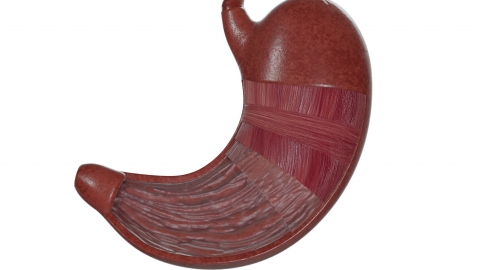What department should I visit for gastrointestinal bleeding?
Generally, patients with gastrointestinal bleeding can choose to visit the gastroenterology department, emergency department, gastrointestinal surgery department, endoscopy center, or nutrition department based on the urgency of symptoms and associated manifestations. Detailed analysis is as follows:

1. Gastroenterology Department
If the symptoms of gastric bleeding are relatively stable, without continuous massive hematemesis, and only manifest as melena and mild abdominal pain, priority should be given to visiting the gastroenterology department. Gastroenterologists will determine the bleeding site and cause through medical history inquiry, fecal occult blood testing, and gastroscopy, and formulate treatment plans such as pharmacological hemostasis and suppression of gastric acid secretion. They will also monitor mucosal healing to prevent recurrence of bleeding.
2. Emergency Department
If gastric bleeding is accompanied by urgent symptoms such as continuous vomiting of blood, dizziness, cold sweats, or altered consciousness, immediate consultation at the emergency department is required. The emergency team will prioritize stabilizing vital signs, correcting shock risks through intravenous fluid resuscitation and blood transfusion, and rapidly identifying the cause of bleeding while coordinating with relevant departments for urgent treatment to prevent life-threatening complications due to excessive blood loss.
3. Gastrointestinal Surgery Department
If gastric bleeding results from complications such as perforation due to peptic ulcer, gastric cancer, or rupture of esophageal and gastric varices unresponsive to medical or endoscopic hemostasis, consultation at the gastrointestinal surgery department is necessary. Surgeons will assess the patient's condition and perform surgical interventions such as repairing the perforation, removing diseased tissue, or ligating bleeding vessels to control hemorrhage at its source and prevent further deterioration.
4. Endoscopy Center
If endoscopic examination is needed to identify the cause of bleeding or to perform direct hemostatic treatment, consultation at the endoscopy center is recommended. Physicians will perform gastroscopy to directly visualize the stomach, accurately locate the bleeding site, and implement minimally invasive hemostatic procedures. This approach is associated with less trauma, faster recovery, reduced surgical risks, and is suitable for most non-critical gastric bleeding patients.
5. Nutrition Department
For patients in the recovery phase of gastric bleeding who need dietary adjustments to promote gastric healing, consultation at the nutrition department is recommended. Based on the patient's bleeding control status, nutritionists will develop individualized dietary plans, gradually transitioning from liquid to soft foods, ensuring adequate nutrition while avoiding food-induced gastric irritation that could lead to recurrent bleeding, thus supporting recovery.
In addition, if gastric bleeding patients present with symptoms such as jaundice or hepatic region pain, consultation at the hepatology department is necessary to investigate potential liver diseases like cirrhosis as the cause of bleeding. In daily life, patients should avoid alcohol consumption and spicy or hard foods, maintain regular meal schedules, and seek timely medical attention to adjust treatment plans if symptoms such as increased melena or worsening abdominal pain occur.










